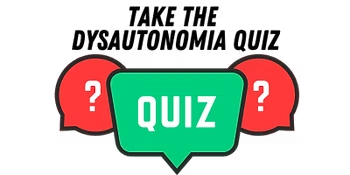Uncovering the Link Between Concussions and Dysautonomia
Have you ever been sucker-punched by a concussion or had your bell rung, only to find that your old self just didn't bounce back?
Introducing Dysautonomia: The Hidden Condition
Well, buckle up, my friend, because this video is tailor-made for you. I’m here to spill the beans on a condition called Dysautonomia that might be lurking behind the scenes.
The Science Behind Mild Traumatic Brain Injuries and Dysautonomia
Let’s roll up our sleeves and dig into some eye-opening research. Studies have shown that even a mild traumatic brain injury, like a concussion or getting your bell rung, can set the stage for Dysautonomia.
The Crucial Role of the Vagus Nerve
Here’s the clincher: another study unveils that these incidents meddle with your vagus nerve. Feast your eyes on this image of the vagus nerve, the granddaddy of all nerves in your body. It starts its journey in your neck and makes its way to every single organ, making it indispensable for the smooth functioning of your heart, liver, pancreas, digestive system, and spleen.
How Dysautonomia Disrupts Vagus Nerve Functioning
But when a concussion or bell-ringing event rears its ugly head, Dysautonomia can throw a wrench into the finely-tuned workings of the all-important vagus nerve, which is instrumental in relaxation, digestion, and your body’s overall performance. As a result, your health takes a nosedive.
Recognizing the Impact of Minor Traumas
Keep in mind, we’re not just talking about earth-shattering, knockout concussions. Even mild ones or a series of minor traumas accumulated over time can lead to this predicament—possibly even from incidents that date back to your days in diapers.
Identifying and Addressing Dysautonomia
So, if you suspect that you’re wrestling with Dysautonomia or post-concussion issues, don’t just sit on your hands. Reach out, and make your way to my website, where you’ll discover a quiz to determine
Frequently Asked Questions (FAQ)
Dysautonomia is a condition where the autonomic nervous system malfunctions. Research shows that even mild concussions can trigger Dysautonomia by disrupting the vagus nerve, which regulates vital body functions such as heart rate, digestion, and relaxation.
Yes. Dysautonomia doesn’t only follow severe concussions. Even mild traumatic brain injuries or repeated minor head traumas over time can interfere with vagus nerve function and lead to long-term symptoms.
Common indicators include fatigue, digestive problems, irregular heart rate, poor stress tolerance, and feeling like you never fully “bounced back” after a concussion. Taking a Dysautonomia quiz or consulting a healthcare provider can help identify it.








